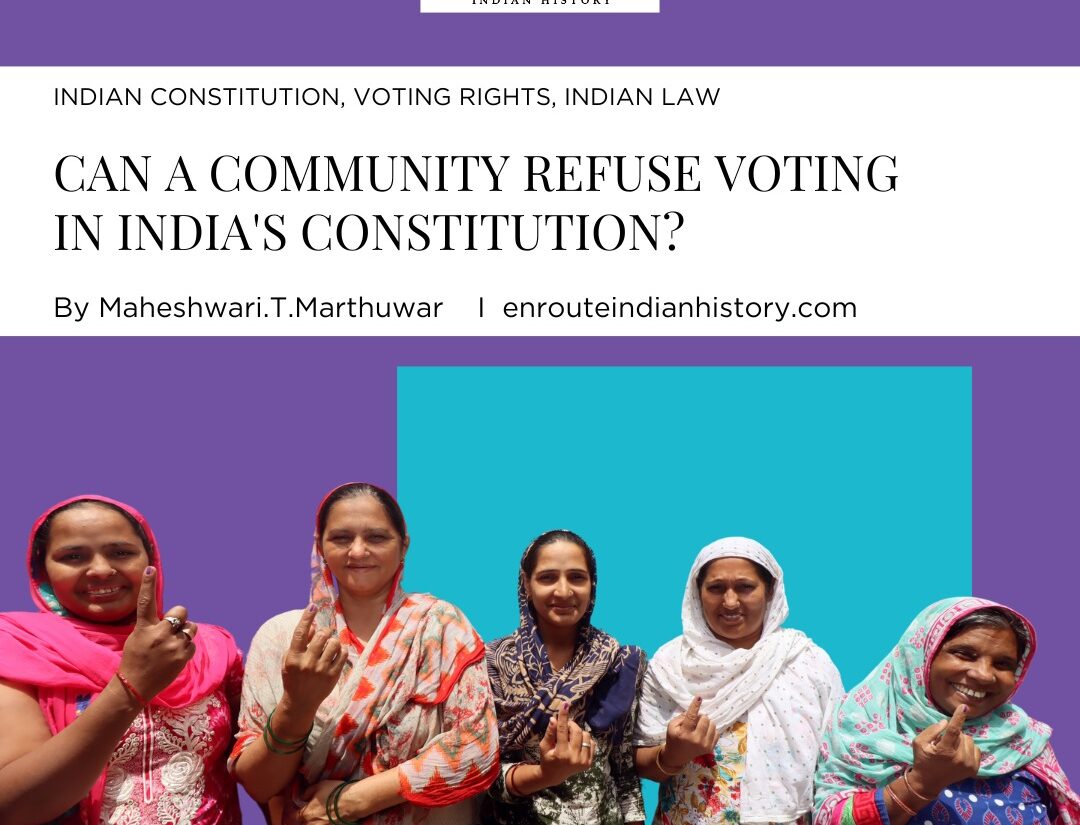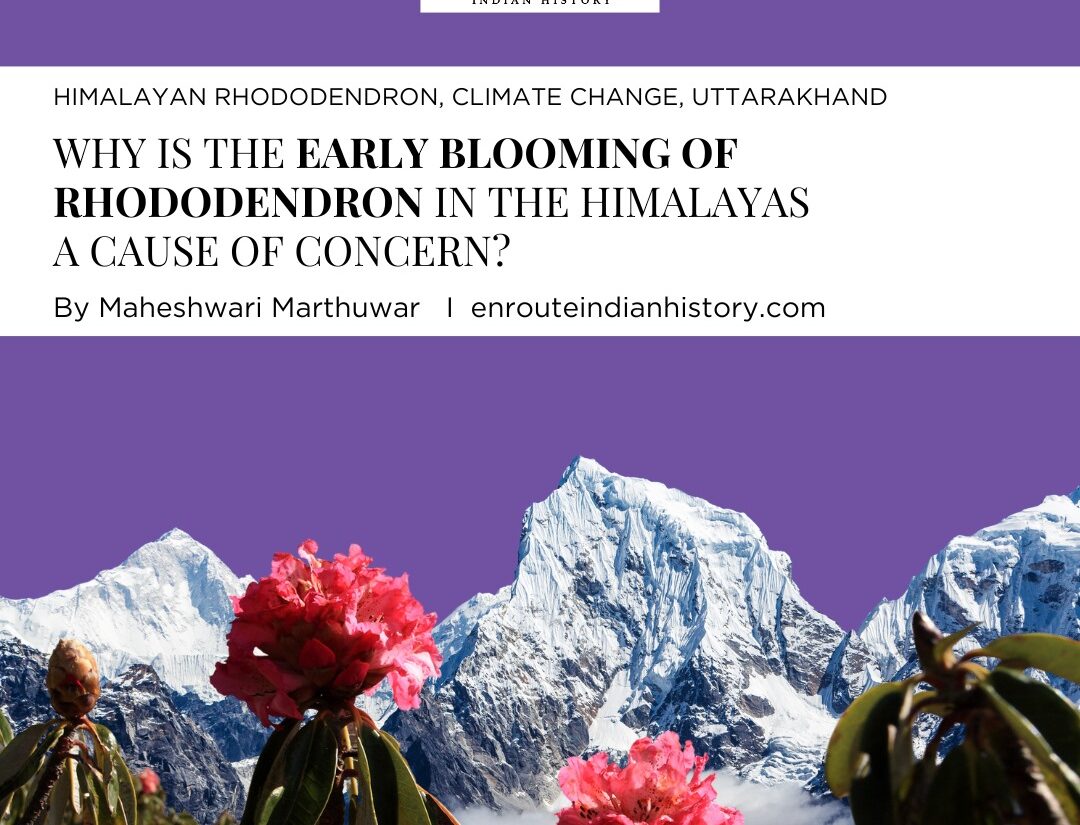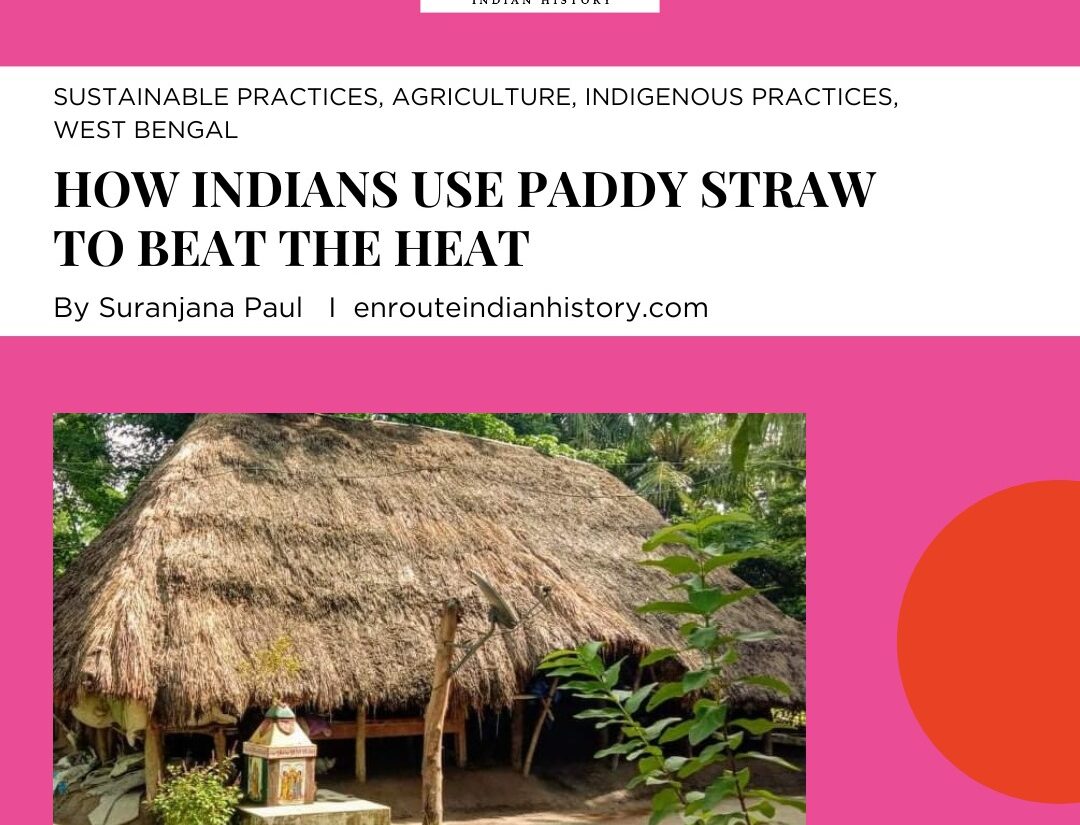
India, the world’s largest democracy, guarantees its citizens the right to vote through its Constitution. In the annals of democratic governance, the right to vote holds paramount significance as a fundamental pillar of citizen empowerment. However, the question arises: Can a community collectively decide to abstain from exercising this inalienable right? In the context of India, a vibrant and diverse nation grappling with complex social and political dynamics, the topic of whether communities can opt out of the electoral process has sparked considerable debate. This article delves into the multifaceted legal, ethical, and societal implications surrounding this contentious issue. By examining the constitutional framework, historical precedents, and the potential consequences of such a boycott, we aim to shed light on the complexities of this question and contribute to a nuanced understanding of the role of voting in a democratic society.
Key Takeaways:
- A community refusing to vote raises questions about the extent of individual freedom within a democratic system.
- The Indian Constitution guarantees the right to vote for all citizens, but it does not explicitly address the concept of a community refusing voting.
- There are potential challenges and benefits associated with a community’s decision to abstain from voting, impacting democratic processes and representation.
- Understanding historical perspectives on community decision-making provides valuable insights into the evolution of voting rights in India.
- Promoting community engagement in voting requires initiatives and policies aimed at empowering communities and enhancing overall participation in the democratic process.
Understanding Voting Rights in India
Voting rights are at the heart of India’s democratic process, ensuring that every citizen has a voice in shaping the nation’s future. The right to vote is a fundamental aspect of community participation and political representation, empowering individuals to express their opinions and contribute to the decision-making process. In India, voting laws are governed by the Constitution of India and various electoral legislations. These laws outline the procedures for conducting elections, including the eligibility criteria for voters, the formation of constituencies, and the code of conduct for candidates and political parties. The democratic process in India is based on the principles of universal suffrage and free and fair elections. Every citizen of India, who is 18 years or older, irrespective of caste, creed, gender, or religion, has the right to vote. This inclusive approach ensures that the collective will of the people, from diverse backgrounds and regions, is reflected in the governance of the country. Community participation is vital to the success of the democratic process. When individuals actively engage in voting, they contribute to the legitimacy and credibility of the electoral system. Moreover, community participation helps foster a sense of belonging and ownership, creating a more inclusive and representative democracy.
“The right to vote is the foundation of any democracy. It is a powerful tool that allows the community to elect leaders who will work in their best interests and address their concerns.”
– Dr. Ambedkar, Chief Architect of the Indian Constitution
Through voting, communities can collectively voice their aspirations, concerns, and demands, driving positive change and progress. By electing representatives who understand and address their needs, communities can ensure that their interests are adequately represented in the democratic process. It is essential to recognize the value of voting rights and encourage widespread community participation in elections. By promoting awareness, education, and accessibility, we can empower individuals to exercise their democratic rights and actively contribute to building a stronger and more inclusive India.
| Voting Rights | Democratic Process | Voting Laws | Community Participation |
| Ensures every citizen’s voice is heard | Facilitates the collective decision-making process | Outlines procedures and regulations | Fosters an inclusive and representative democracy |
| Empowers individuals to express their opinions | Reflects the will of the people | Defines eligibility criteria and code of conduct | Drives positive change and progress |
| Strengthens the legitimacy and credibility of the electoral system | Ensures a fair and transparent selection of leaders | Creates a level playing field for candidates and political parties | Builds a stronger and more inclusive India |
The Role of the Indian Constitution
In the realm of voting rights and community decision-making in India, the Indian Constitution plays a pivotal role. With its comprehensive provisions, it ensures the protection and exercise of voting rights for every eligible citizen, promoting the principles of Democracy and inclusivity. The Indian Constitution, adopted on January 26, 1950, sets the foundation for the democratic process in the country. It guarantees the right to vote as a fundamental right through various constitutional articles, such as Article 326, which mandates universal adult suffrage. Article 326 explicitly states that “the elections to the House of the People and to the Legislative Assembly of every State shall be on the basis of adult suffrage.” This provision recognizes every individual above the age of 18 as an eligible voter, irrespective of caste, creed, gender, or ethnicity. Furthermore, the Indian Constitution upholds the principles of equality and non-discrimination, emphasizing that no citizen should be deprived of their voting rights based on any grounds. This ensures that community decision-making is representative and gives a voice to all sections of society. Through its constitutional framework, the Indian Constitution also establishes institutions such as the Election Commission of India, which acts as the guardian of free and fair elections. The Election Commission plays a crucial role in enforcing the provisions of the Constitution related to voting rights and ensuring that the electoral process remains transparent and accessible.
The Indian Constitution’s commitment to voting rights and community decision-making reflects its dedication to the democratic ideals and aspirations of the nation. By guaranteeing the right to vote, it empowers and enables citizens to actively participate in shaping their communities and the country as a whole.
Constitutional Safeguards for Voting Rights
Several constitutional safeguards are in place to protect and uphold voting rights in India. Some of the key provisions include:
- Article 326: This article enshrines universal adult suffrage as a fundamental right, ensuring that every eligible citizen can exercise their right to vote.
- Article 325: This article prohibits the restriction of voting rights based on factors such as religion, race, caste, sex, or place of birth, promoting equality and non-discrimination in the electoral process.
- Article 327: This article empowers the Parliament to make laws regarding the conduct of elections, ensuring that the electoral process remains fair and conducive to community decision-making.
- Article 324: This article grants authority to the Election Commission of India, giving it the power to supervise and conduct elections, implement electoral roll revisions, and enforce the Model Code of Conduct.
These constitutional safeguards serve to protect the integrity of the democratic process, ensuring that every citizen has an equal opportunity to participate in community decision-making through the exercise of their voting rights.
Can a Community Refuse to Vote?
Within the framework of the Indian Constitution, there is a question of whether a community can refuse to vote. It is a complex matter that requires a closer examination of the rights and responsibilities enshrined in the Constitution. While the Constitution guarantees the voting rights of every citizen, it does not explicitly address the concept of refusing to vote as a community. The Indian Constitution views voting as a fundamental right and a crucial component of democracy. Article 326 of the Constitution expressly provides for the right to vote, ensuring equal suffrage for all Indian citizens. However, it does not impose an obligation to exercise this right. Therefore, in theory, a community could choose to abstain from participating in the electoral process. Despite this theoretical possibility, the refusal to vote as a community raises several potential implications and consequences. The democratic process relies on the active participation of citizens to give legitimacy to elected representatives and ensure that diverse voices are represented. When a community refuses to vote, it risks diminishing its influence in decision-making and political representation. Moreover, voting allows communities to express their concerns, aspirations, and preferences. It is through the ballot box that communities can shape the policies and directions of their respective constituencies. By refusing to vote, a community may inadvertently sideline its interests and exclude itself from the democratic discourse.
“Voting is not just a right; it is a responsibility, a means to bring about change, and a way to represent and empower communities.”
Furthermore, the Indian Constitution emphasizes the principles of equality, social justice, and inclusivity. By refusing to vote, a community may risk undermining these principles and perpetuating existing disparities. This raises ethical and moral questions about the consequences of a community’s decision to abstain from voting. While the Indian Constitution does not explicitly address the concept of a community refusing to vote, it is essential to consider the broader context and principles it upholds. The Constitution seeks to ensure meaningful participation and representation for all citizens. Therefore, an informed and active engagement with the democratic process remains crucial for the well-being and progress of communities in India.
Abolition of Voting: What Does it Entail?
In the context of the Indian Constitution, the concept of the abolition of voting raises several intriguing questions and considerations. If a community were to choose to abolish voting, how would this decision impact community decision-making and political representation?
The abolition of voting refers to the deliberate choice of a community to exclude itself from participating in the electoral process. While the Indian Constitution upholds the right to vote as a fundamental right of every citizen, it is essential to explore the potential implications of a community refusing to exercise this right. By abstaining from voting, a community may believe that it can assert its autonomy and assert alternative forms of decision-making. This could involve adopting community-driven approaches to governance, where decisions are made collectively rather than through representative democracy. However, such a change would require a significant shift in societal norms and legal frameworks. One of the key considerations of the abolition of voting is the potential impact on community decision-making. In a democracy, voting is a mechanism through which individuals express their preferences and elect representatives who will make decisions on their behalf. If a community were to abolish voting, it would need to establish alternative mechanisms for decision-making that are inclusive, transparent, and accountable. Furthermore, the abolition of voting raises questions about political representation. Voting allows individuals and communities to elect representatives who will advocate for their interests and concerns. If a community chooses to abolish voting, it would need to find alternative ways to ensure that its voice is heard and its interests are represented adequately. While the concept of the abolition of voting may seem radical, it serves as a thought-provoking exploration of community decision-making and political participation. The potential implications, benefits, and challenges of such a decision merit further examination and debate.
Case Studies : Community Engagement or Disengagement in Voting
This section presents case studies that showcase the various ways in which communities in India have engaged or disengaged with the voting process. These case studies provide valuable insights into the dynamics of community participation and decision-making regarding voting rights in India. They shed light on the factors that influence community engagement and explore the consequences of community choices on the democratic process.
-
Case Study 1: Youth-led Voting Campaign
In this case study, the government initiated a voting campaign to increase youth community participation. Recognizing the importance of voting rights in shaping their collective future, the youth organized awareness drives and education programs, targeting both youths and elders. Through their engagement efforts, they managed to significantly increase voter turnout in their village, fostering a sense of empowerment and civic responsibility among community members. Many among our young feel that politicians and political parties do not advocate agendas that appeal to them. They do not have faith in a top-down approach, particularly in a political process. There is no guidebook that can easily sort out dilemmas in a world of ambiguous interpretations and incomplete awareness of what a real political system should be.
-
Case Study 2: Religious Community’s Abstention
In contrast, this case study examines a religious community in Uttar Pradesh that abstains from voting due to their belief in non-involvement in secular affairs. Despite being politically aware, members of this community choose not to participate in elections as a collective decision. This case study offers insights into the complexities surrounding community decision-making and the factors that shape voting behaviour within specific religious contexts. Recent years have seen a change in the body politic and the religious and demographic landscape which inflicts great stress on religious minorities. It has rapidly eroded constitutional rights and disrupted the democratic and development of the Christians and Muslims community. The other community thought that the election manifestos and campaigns of political parties show that the BJP is banking once more on Ram and religion, rather than on its development record. The most powerful party has also shown its majoritarian bias. Every vote will count to limit the electoral juggernaut.

-
Case Study 3: Women’s Empowerment through Voting
Most importantly, the new government will not only have to ensure women’s representation in the developmental and power institutions to be on par with that of men, but that they also have an active role to play in the decision-making bodies of the government. Highlighting the transformative power of voting, this case study explores how a women-led organization in Bihar actively engaged local women in the electoral process. By providing education on voting rights, addressing social barriers, and promoting gender equality, the organization succeeded in empowering women to exercise their right to vote. This case study underscores the significance of community-driven initiatives in enhancing the inclusivity of the democratic process. The political implication of this trend is such that the social character of political parties can no longer avoid reaching out to them. The potential outcome of this is that the social composition of the political parties could see an increased women participation. Meanwhile, women could also have a more effective role to play in the day-to-day politics and public domain.
-
Case Study 4: Indigenous Community’s Struggle for Representation
This case study focuses on an indigenous community in Meghalaya that faces challenges in accessing voting rights due to geographical remoteness and lack of infrastructure. The case study examines the community’s efforts to overcome these hurdles and advocate for improved representation within the democratic system. It highlights the importance of community mobilization and the need for targeted initiatives to ensure the inclusivity of marginalized communities. In recent years Manipur Amidst incidents of vandalization of polling booths, firing between the rival groups, clashes in more than six places around in ethnic violence-hit Manipur. While voting took place in Kuki-dominated districts, Churachandpur another Kuki dominated district Kangpokpi saw dismal voters turn out. The Kuki Inpi Sadar Hills directed its members of the Kuki community in Sadar Hills to abstain from participating in the upcoming Lok Sabha election.
-
Case Study 5 : During the First Phase of Lok Sabha elections, in Shamator, Nagaland on April 19, 2024
During the recent 2024 elections, there was a significant lack of voter turnout in six eastern districts of Nagaland. Polling personnel waited for nine hours in booths, yet not a single one of the four lakh voters in the region showed up due to a shutdown call issued by an organization advocating for the establishment of a ‘Frontier Nagaland Territory’ (FNT). The Eastern Nagaland People’s Organization (ENPO), in alignment with their demand for a separate state, encouraged the populace to refrain from participating in the voting process in the districts of Mon, Tuensang, Longleng, Kiphire, Shamator, and Noklak. These districts are home to seven tribes – Chang, Khiamniungan, Konyak, Phom, Tikhir, Sangtam, and Yimkhiung. The ENPO has been persistent in their call for a separate state encompassing these six districts, citing a lack of socio-economic progress under successive governments as their primary motivation.

-
Case Study 6 : Rajputs in Western UP community members not to vote for BJP
Amidst the ongoing Lok Sabha election, the Rajputs (also known as Thakurs) community are coordinating a series of caste panchayats across western Uttar Pradesh. These panchayats are being organized by the Thakurs to articulate their dissatisfaction with the BJP regarding their alleged marginalization and ticket distribution. Rajputs, who are considered a key voter base for the BJP, have prompted the saffron party to implement several damage-control measures.
-
Case Study 7 : Transgender Community not considered as citizens of Indian society
Sonali Dalvi, a transgender woman, has consistently exercised her right to vote in every election. In the electoral rolls, Dalvi is listed as a transgender individual, one of the 700 or so registered in Pune district. Dalvi firmly believes that as a citizen, it is her constitutional right to participate in the democratic process. However, she acknowledges that the transgender community remains largely marginalized in the political landscape, with their rights primarily secured through the intervention of the Supreme Court. Despite the importance of voting, the transgender community in Pune does not feel adequately represented in the electoral system. Over the course of many decades, they have endured neglect and discrimination, and the electoral process has done little to address their concerns. Even ten years after the landmark NALSAR judgment by the Supreme Court, Dalvi emphasizes that the community is still grappling with fundamental issues. Regrettably, they are often overlooked and excluded from the broader political discourse. Dalvi’s statement reflects the prevailing sentiment among transgender individuals who feel marginalized and unheard in the larger scheme of things.
These case studies provide valuable insights for community engagement or disengagement in voting. They offer real-world examples of the impact of community choices on the democratic process and serve as a reminder of the significance of voting rights in India’s vibrant and diverse democracy.
Historical Perspectives on Community Decision-Making
Understanding the Historical perspectives on community decision-making provides valuable insights into the evolution of voting rights in India. Throughout history, communities have played a significant role in shaping the democratic processes of the nation. Examining these historical perspectives allows for a deeper understanding of the current landscape and any shifts in attitudes towards community decision-making and voting rights.
-
Colonial Era and Community Involvement
During India’s Colonial Era under British rule, community decision-making and voting rights were limited. The British government imposed restrictions on the participation of indigenous communities, suppressing their voices in the political process. This era witnessed a significant disconnect between community decision-making and the exercise of voting rights.
-
Independence Movement and Empowered Communities
The independence movement in the early 20th century brought about a wave of change and empowerment among Indian communities. Campaigns led by prominent leaders, such as Mahatma Gandhi, aimed to unite communities and fight for their rights, including the right to vote. The struggle for independence placed greater emphasis on community decision-making and laid the groundwork for a more inclusive democratic process.
“The Indian independence movement served as a catalyst for communities to demand their rightful place in decision-making and voting processes.”
– Mahatma Gandhi
-
Post-Independence Era and Inclusive Democracy
Following India’s independence in 1947, the drafting of the Constitution emphasized the importance of inclusive Democracy and community participation. The Constitution granted universal adult suffrage, ensuring voting rights for all eligible citizens. This marked a significant milestone in the history of community decision-making and voting rights in India, reflecting a commitment to foster a vibrant and participatory democracy.
Evolving Attitudes and Community Dynamics
Over the years, attitudes towards community decision-making and voting rights have continued to evolve. Communities have become more engaged and assertive in participating in the democratic process. Grassroots movements and community-based organizations have played instrumental roles in mobilizing voters, raising awareness, and fostering community empowerment. Furthermore, technological advancements and increased access to information have contributed to greater community connectivity and awareness of voting rights. Today, communities are more informed and active participants in the decision-making process, utilizing their voting rights to shape the future of India.
| Historical Period | Key Features |
| Colonial Era | Restricted community involvement and limited voting rights |
| Independence Movement | Empowered communities and the demand for voting rights |
| Post-Independence Era | Inclusive Democracy and universal adult suffrage |
| Evolving Attitudes | Increased community engagement and the impact of technology |
Challenges and Benefits of Community Refusal to Vote
Voting is a fundamental pillar of democracy, serving as a means for communities to express their opinions and shape the course of their nation. However, there are instances when communities choose to refrain from participating in the electoral process, resulting in what is known as community refusal to vote. This phenomenon poses both challenges and potential benefits for Indian democracy.
Challenges
- Underrepresentation : When a community refuses to vote, it risks being underrepresented in political decision-making processes. This can lead to a lack of diverse perspectives and the exclusion of important community concerns from the political agenda.
- Distorted outcomes : The refusal to vote by a significant segment of the community can distort the electoral outcomes, potentially favoring a particular political party or ideology that may not align with the broader interests and aspirations of the community.
- Loss of voice : By abstaining from voting, a community may lose its collective voice in the democratic process. This can result in decreased visibility and influence, impacting the community’s ability to advocate for its rights, needs, and aspirations.
Benefits
- Protest and dissatisfaction : Community refusal to vote can serve as a powerful expression of protest and dissatisfaction with the existing political system or candidates. It acts as a mechanism for communities to voice their discontent and demand change.
- Pressure for reform : The refusal to vote by a significant community can put pressure on political parties and candidates to address the concerns and aspirations of that community. This can lead to policy reforms and enhanced representation for marginalized groups.
- Community empowerment : The act of refusing to vote can spark community-wide dialogue and engagement, fostering solidarity and a sense of collective agency. It provides an opportunity for communities to come together, discuss issues, and explore alternative avenues for community decision-making.
In evaluating the challenges and benefits of community refusal to vote, it is essential to strike a balance between individual agency and collective responsibility. While it is crucial to respect a community’s right to abstain from voting, efforts should be made to address the underlying causes of this refusal and promote inclusive participation in the democratic process.
“The refusal to vote is not always a sign of apathy. It can be a powerful expression of collective agency and demand for change.”
– Dr. Ravi Gupta, Political Scientist
Evaluating the Legal and Ethical Dimensions
When examining a community’s refusal to vote in India, it is crucial to consider the legal and ethical dimensions surrounding this decision. In the Indian Constitution, voting rights are granted to every citizen, ensuring their active participation in the democratic process.
The legal dimensions of a community’s refusal to vote revolve around the constitutional provisions and any potential implications for the electoral system. While the Indian Constitution guarantees the right to vote, it does not explicitly address the scenario of a community collectively abstaining from voting. However, it is essential to recognize that individual citizens still retain their voting rights, even if their community chooses not to participate.
The ethical dimensions of community refusal to vote bring forth questions of civic responsibility, political representation, and democratic values. Ethically, individuals may prioritize their duty towards the community over exercising their individual voting rights. This may arise from cultural or social factors that shape communal decision-making processes. Nevertheless, community refusal to vote raises concerns about the representation and inclusivity of different perspectives within the democratic system.
The Indian Constitution and Legal Implications
The Indian Constitution enshrines the right to vote as a fundamental right of every citizen. However, it does not explicitly address the issue of community refusal to vote. This silence creates ambiguity regarding the legality of such a decision. Nonetheless, legal professionals argue that the Constitution does not prohibit a community from collectively abstaining from voting. As long as individual citizens retain their voting rights and the electoral process remains fair and transparent, community refusal to vote does not violate the constitutional framework.
| Legal Dimensions | Ethical Dimensions |
| Indian Constitution guarantees the right to vote | Questions of civic responsibility |
| Constitution does not explicitly address community refusal to vote | Impact on political representation |
| Individual citizens retain their voting rights | Ethics influenced by cultural and social factors |
| Electoral process must remain fair and transparent | Inclusivity of different perspectives within democracy |
The legal implications of community refusal to vote are multi-faceted. It raises questions regarding the accountability of elected representatives and the impact on political outcomes. Communities that choose not to vote may feel disconnected from the decision-making process and face challenges in ensuring their interests are represented. Additionally, the absence of community participation in elections may skew political power dynamics and hinder the overall functioning of Indian Democracy.
Ethical Considerations and Community Decision-Making
“The refusal to vote by a community reflects the complex interplay of cultural, social, and moral considerations. It is an expression of collective agency, where the community’s priorities and values shape their stance towards political participation.”
Ethically, the decision of a community to refuse voting raises important questions about the values and priorities of that particular community. Cultural and social factors play a significant role in shaping these decisions, as communities may prioritize communal decision-making processes rooted in their traditions or beliefs. However, this may also lead to exclusion and undermine the diversity of opinions within the democratic fabric.
Moreover, community refusal to vote challenges the principles of political representation and inclusivity. Democracies thrive on the idea of representing diverse voices and ensuring that every citizen’s perspectives are accounted for in policy-making. When a community deliberately chooses to abstain from voting, there is a risk of marginalizing their interests and hindering the pursuit of a truly representative democracy.
It is imperative to strike a balance between recognizing a community’s autonomy in decision-making and fostering a participatory democratic system that embraces and amplifies diverse voices. The legal and ethical dimensions surrounding community refusal to vote necessitate continuous dialogue and deliberation to ensure the integrity of the Indian Constitution and the vibrant fabric of Indian democracy.
Promoting Community Engagement in Voting
Enhancing community engagement in the voting process is essential for strengthening Indian Democracy and ensuring the active participation of all citizens. Empowering communities to exercise their voting rights not only fosters a sense of responsibility and ownership but also leads to more inclusive and representative governance.
Here are some strategies that can be employed to promote community engagement in voting :
- Education and Awareness : Conducting voter education campaigns that highlight the importance and benefits of voting can help raise awareness within communities. These campaigns can include informational sessions, workshops, and the distribution of voter guides to educate individuals on the electoral process and their rights as voters.
- Community Outreach : Engaging with communities directly through local organizations, community centers, and religious institutions can help build trust and connect with individuals who may be hesitant to participate in the voting process. By establishing personal connections and addressing community-specific concerns, targeted outreach initiatives can encourage greater community participation.
- Campaigns to Promote Community Representation : Encouraging diverse community members to stand as candidates for elected positions can help foster a sense of community representation. By promoting individuals who understand the unique challenges and aspirations of their communities, the democratic process becomes more inclusive and representative.
- Inclusive Policies : Implementing policies that support inclusivity, such as providing interpretation services, accessible polling stations, and transportation assistance, can remove barriers that hinder community participation in the voting process. These measures ensure that all individuals, irrespective of their backgrounds or abilities, have equal access to exercise their voting rights.
- Collaboration with Non-Governmental Organizations (NGOs) : Partnering with NGOs dedicated to promoting Democracy and civic engagement can amplify efforts to engage communities in the voting process. NGOs often have expertise in community mobilisation and can provide resources, training, and guidance to facilitate greater community participation in elections.
By implementing these strategies, Indian Democracy can foster a culture of community participation in the electoral process, thereby strengthening the collective voice and representation of diverse communities.
“The future of Indian Democracy lies in the hands of its citizens. By promoting community engagement in voting, we can ensure that every voice is heard and every vote counts.” – Anonymous
| Benefits of Community Engagement in Voting | Challenges of Community Engagement in Voting |
| Enhanced representation of community interests | Lack of awareness about the electoral process |
| Greater accountability of elected officials | Accessibility barriers for certain community members |
| Strengthened democratic institutions | Community-specific socio-cultural factors |
| Empowerment of marginalized communities | Historical disenfranchisement and distrust |
| Improved policymaking reflecting diverse perspectives | Language barriers and communication gaps |
The discussion on whether a community can refuse voting in India’s Constitution highlights the significance of voting rights and community decision-making within the democratic process. The Indian Constitution plays a crucial role in shaping these rights and ensuring the principles of Democracy are upheld. While the Constitution guarantees the right to vote, it does not explicitly address the concept of a community refusing to participate in elections. However, the implications of such a refusal can impact community dynamics, political representation, and overall democratic processes. It is essential to evaluate the legal and ethical dimensions surrounding community decision-making and political participation. Looking ahead, promoting community engagement in voting is vital for a robust democracy. Initiatives and policies that empower communities to actively exercise their voting rights are essential in fostering inclusive and participatory decision-making. By recognizing the importance of voting and encouraging community participation, India can strengthen its democratic foundations and ensure representation for all.
Reference
Article Sources
- Ameeta Mulla Wattal, Why is India’s youth not voting, Indian Express News Article, 9th April 2024.
- Anuradha Mascarenhas, Pune’s 700 registered transgender voters get ready to vote despite being denied basic rights, The Indian Express News Article, 4th April 2024.
- Gupta Kriti, All About Vote And Voting Rights In India, Access On 24th April 2024.
- Harsha L & Gaurishankar S, What needs to be done to get more young Indians to vote?, Deccan Herald News Article, 28th October 2023. Case Study
- Kumar Sanjay, Women Emerged as the ‘Silent Majority’ in Bihar Elections. What Comes Next?, The Wire News Article, 22nd November 2020.
- Mandatory voting is not practical, says Centre, The Hindu News Article, 24th April 2024.
- Poll officers can’t force electors who ‘refuse’ to vote at poll booths, says EC rule, The Hindu News Article, 28th March 2024.
- PTI, Government launches campaign to encourage first-time voters to vote in Lok Sabha elections, Deccan Herald News Article, 27th February 2024.
- Singh Bikask, Lok Sabha election phase 1: No voters turn out in six districts of Nagaland, The Economic Times News Article, 19th April 2024.
- Stéphanie Tawa Lama-Rewal, Studying Elections in India: Scientific and Political Debates, Contests in Context: Indian Elections 2009, https://doi.org/10.4000/samaj.2784.
- The Ethics and Rationality of Voting, Stanford Encyclopedia of Philosophy, Access On 24th April 2024.
- Tora Agarwala, India’s strife-torn Manipur overcomes fear of violence to vote in big numbers, Reuters News Article, 19th April 2024.
- Why are Rajputs in Western UP urging community members not to vote for BJP?, Money Control News Article, 22nd April 2024.
- Zero voter turnout in 6 Nagaland districts amid shutdown callCM says no problem with demand, The Hindu News Article, 19th April 2024.
Images Sources
IStock Photos, Voting Rights in India, Access On 24th April 2024.
- May 15, 2024
- 6 Min Read























